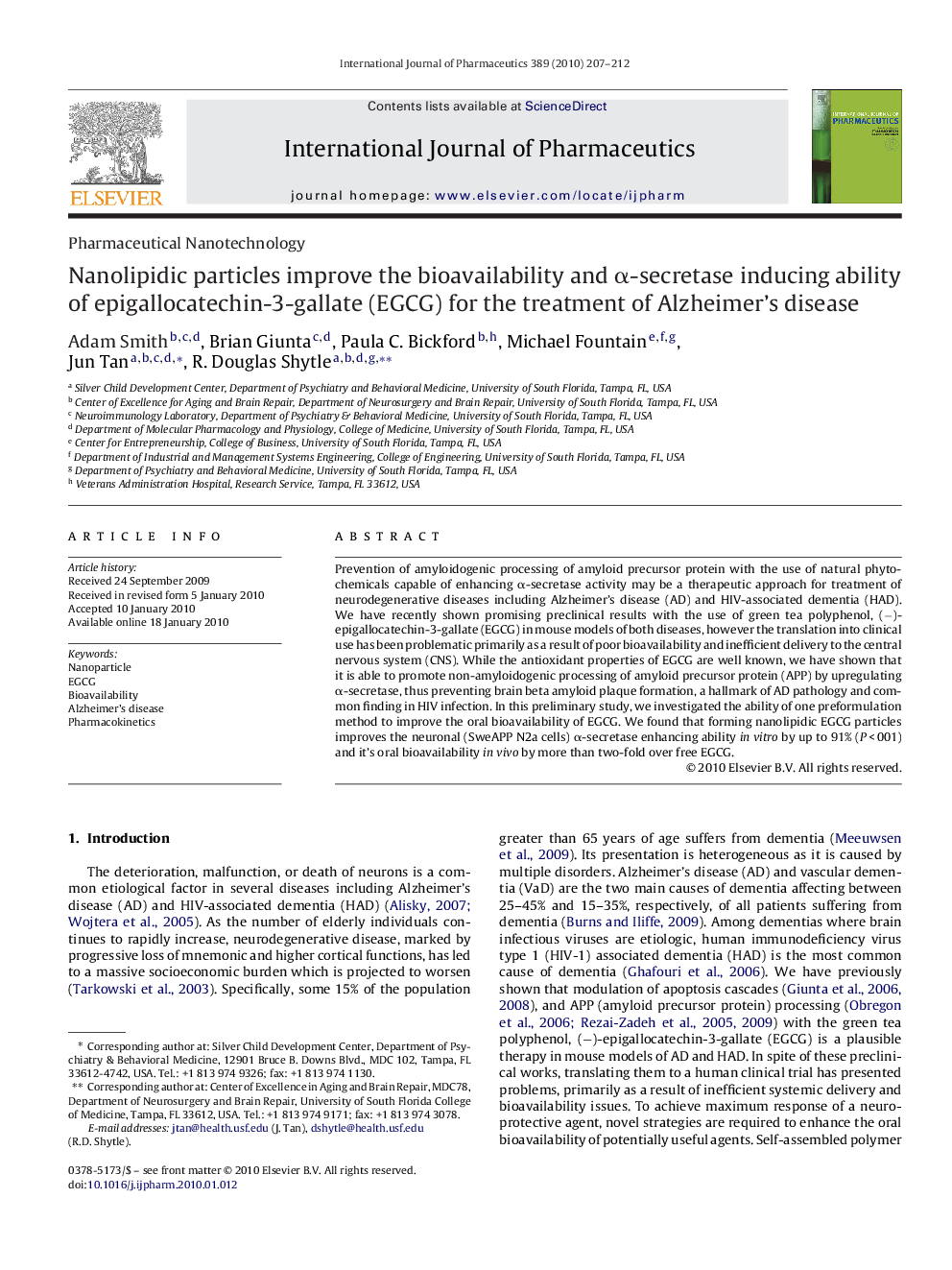| کد مقاله | کد نشریه | سال انتشار | مقاله انگلیسی | نسخه تمام متن |
|---|---|---|---|---|
| 2504225 | 1557454 | 2010 | 6 صفحه PDF | دانلود رایگان |

Prevention of amyloidogenic processing of amyloid precursor protein with the use of natural phytochemicals capable of enhancing α-secretase activity may be a therapeutic approach for treatment of neurodegenerative diseases including Alzheimer's disease (AD) and HIV-associated dementia (HAD). We have recently shown promising preclinical results with the use of green tea polyphenol, (−)-epigallocatechin-3-gallate (EGCG) in mouse models of both diseases, however the translation into clinical use has been problematic primarily as a result of poor bioavailability and inefficient delivery to the central nervous system (CNS). While the antioxidant properties of EGCG are well known, we have shown that it is able to promote non-amyloidogenic processing of amyloid precursor protein (APP) by upregulating α-secretase, thus preventing brain beta amyloid plaque formation, a hallmark of AD pathology and common finding in HIV infection. In this preliminary study, we investigated the ability of one preformulation method to improve the oral bioavailability of EGCG. We found that forming nanolipidic EGCG particles improves the neuronal (SweAPP N2a cells) α-secretase enhancing ability in vitro by up to 91% (P < 001) and it's oral bioavailability in vivo by more than two-fold over free EGCG.
Journal: International Journal of Pharmaceutics - Volume 389, Issues 1–2, 15 April 2010, Pages 207–212